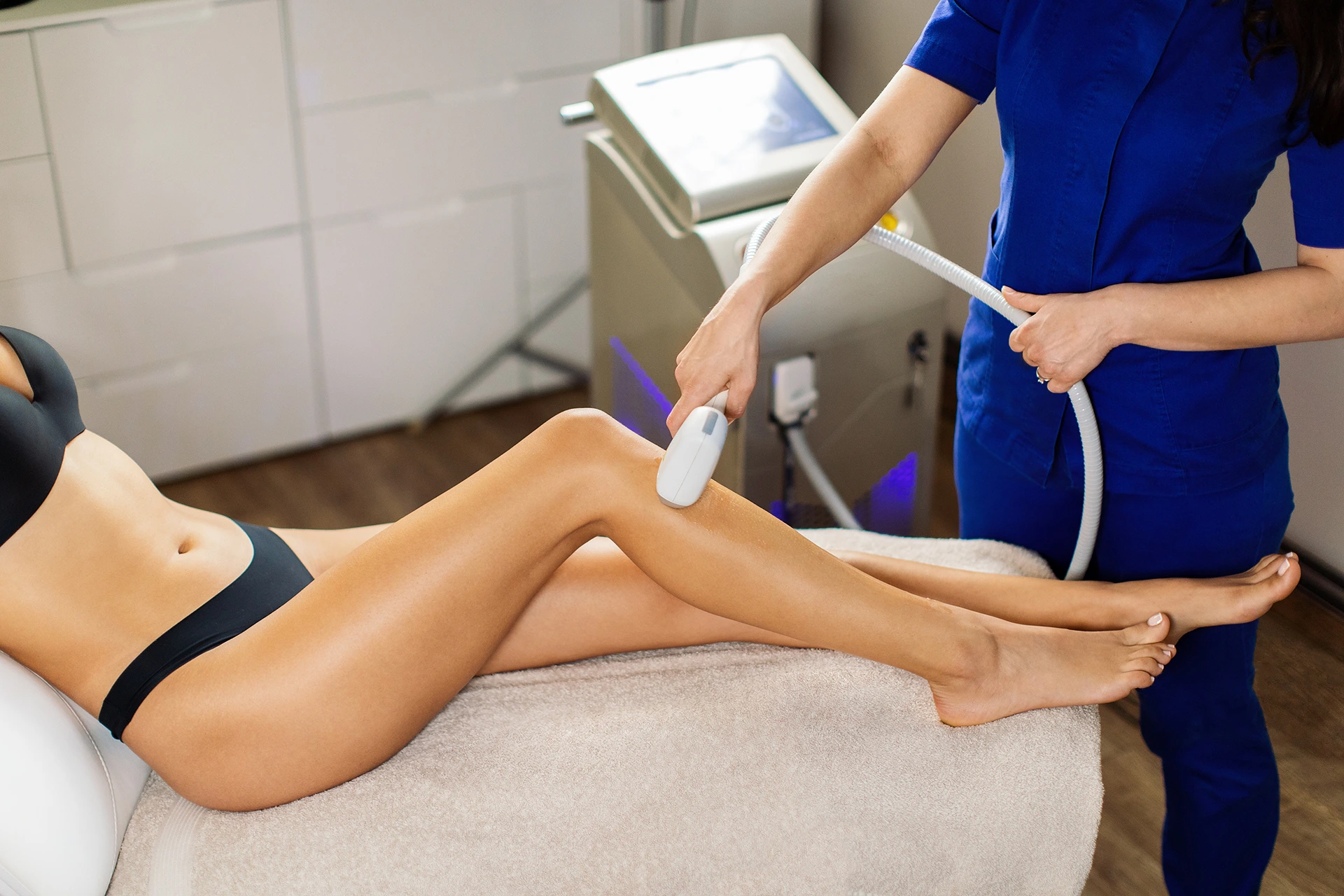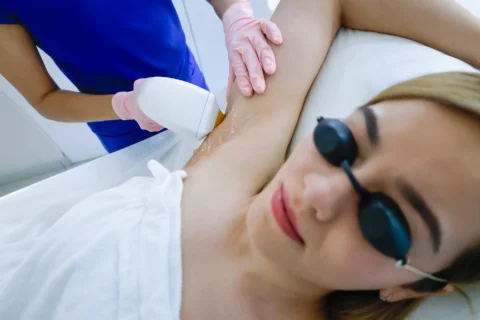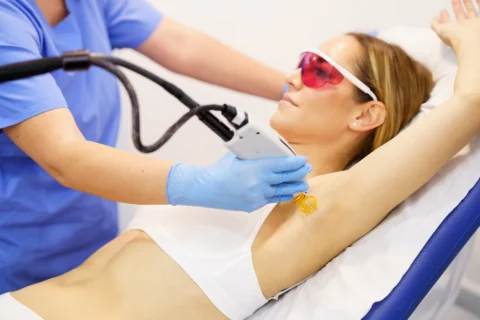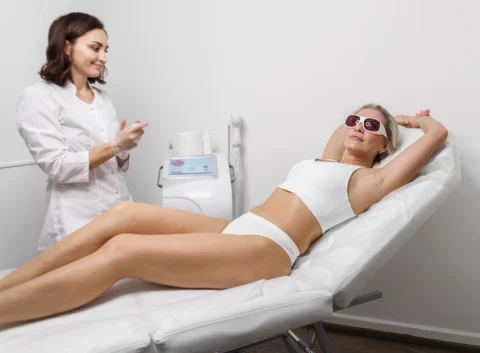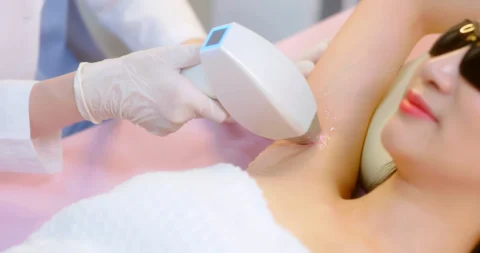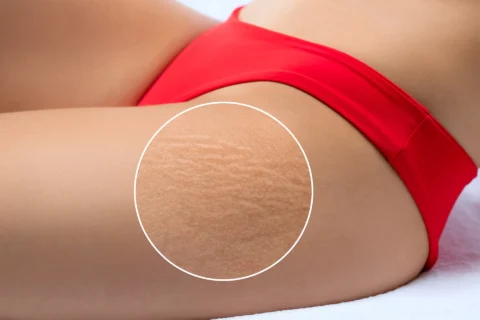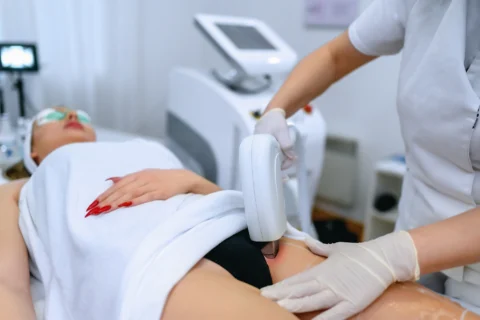The Truth Behind This Common Concern for Women Seeking Permanent Hair Reduction
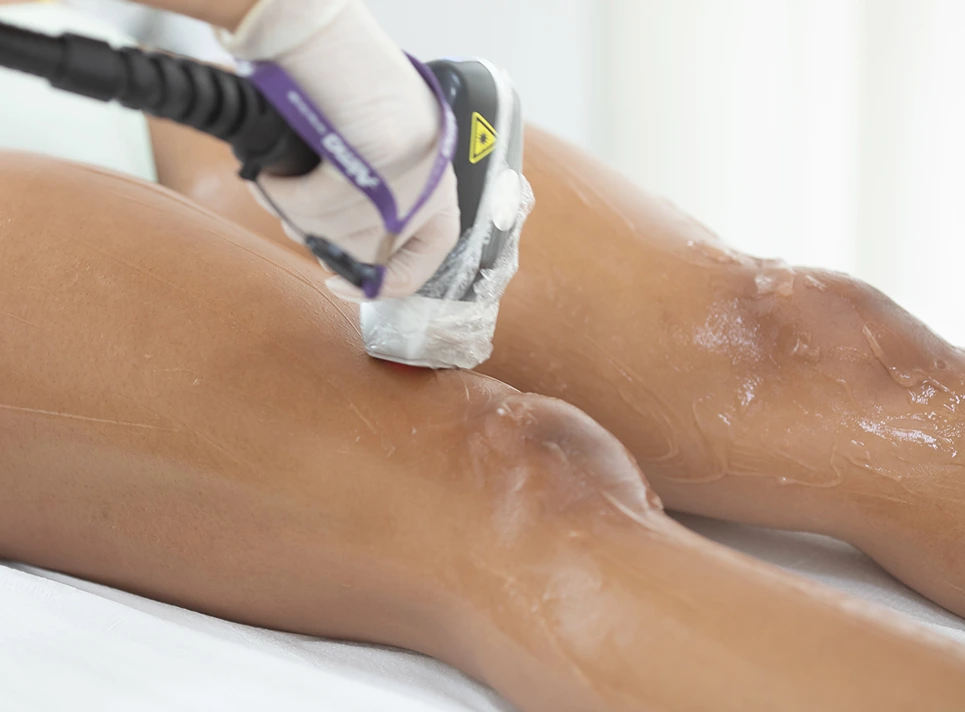
At Ethos Spa, we know that the thought of unwanted body hair can sometimes be deeply uncomfortable.
You want to feel confident and comfortable in your skin, without the hassle of constant shaving or waxing. That’s why more and more people are turning to laser hair removal for a permanent solution.
As pioneers in the laser hair removal industry, we’ve helped thousands embark on their journey to smooth, hair-free skin.
But we also know that with any cosmetic procedure, you have questions and concerns. One of the most common we hear is: can laser hair removal cause yeast infections?
It’s an important consideration – yeast infections are uncomfortable and inconvenient.
The good news is that at Ethos Spa, we utilize state-of-the-art laser technology and stringent protocols to maximize results and minimize side effects.
What Exactly Are Yeast Infections?
First, let’s start with the basics.
Yeast infections are a common fungal infection caused by an overgrowth of the Candida fungus. Symptoms include itching, burning, redness, and a thick, white discharge in the vagina or vulva region. While annoying, yeast infections are easily treatable. But you want to avoid them if possible.
Yeast infections can be triggered by anything that disrupts the natural microbial balance in the vagina. Factors like hormones, antibiotics, pregnancy, and diabetes can increase susceptibility. Even small irritations to the vulva or vagina may potentially allow yeast to proliferate.
This is what brings up the question of laser hair removal. Since the treatment works by targeting the hair follicle beneath the skin, it creates minor wounds.
The concern is whether these tiny injuries could allow Candida fungus to gain a foothold, resulting in a yeast infection.
So What Does The Research Say?
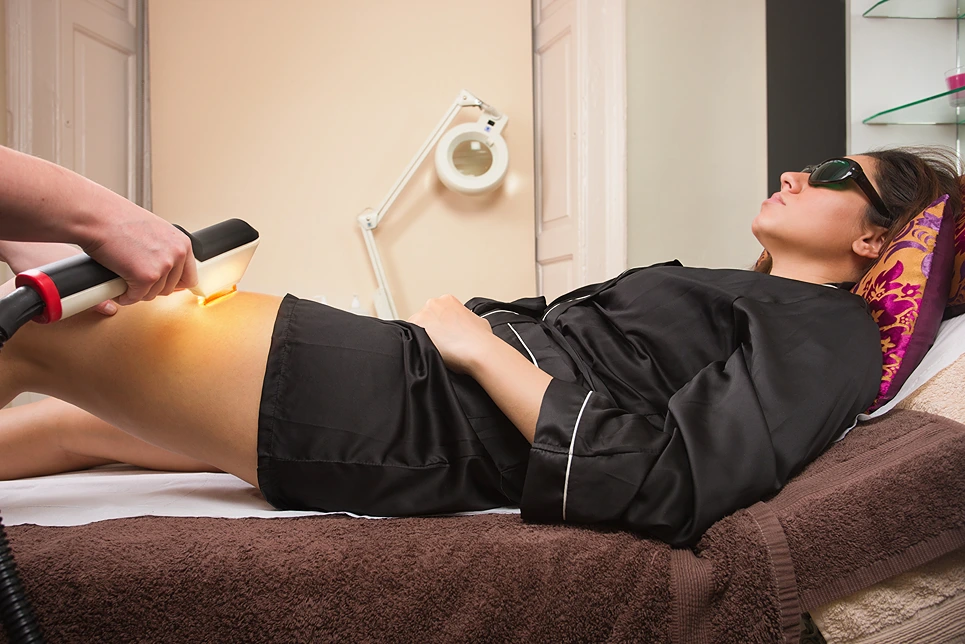
Various studies have been conducted to ascertain if laser hair removal does indeed increase yeast infection risk. The results appear reassuring:
- A 2015 meta-analysis compiled data from several studies involving nearly 2000 patients. They found no statistical difference in yeast infection rates for those who had received laser hair removal versus those who had not.
- A study published in the Journal of Lasers in Medical Sciences evaluated the impact of alexandrite 755nm laser hair removal on the axillary region in 30 women. Results showed a 63% improvement in body odor, and decreases in the prevalence of bacterial strains like Staphylococcus aureus, except for Staphylococcus epidermidis. This indicates laser irradiation may beneficially alter microbial flora.
The overall consensus from dermatologists and researchers is that laser hair removal performed properly at an established facility like Ethos Spa does NOT substantially increase the risk of developing yeast infections for most women.
Proper treatment protocols and techniques are key to avoiding side effects. The study on axillary laser hair removal provides further evidence that controlled laser use can improve skin microbial balance.
However, it’s important to note that for some individuals, especially those prone to yeast infections, preventive measures may still be warranted after laser sessions. Let’s explore some best practices.
Staying Proactive Against Yeast Infections
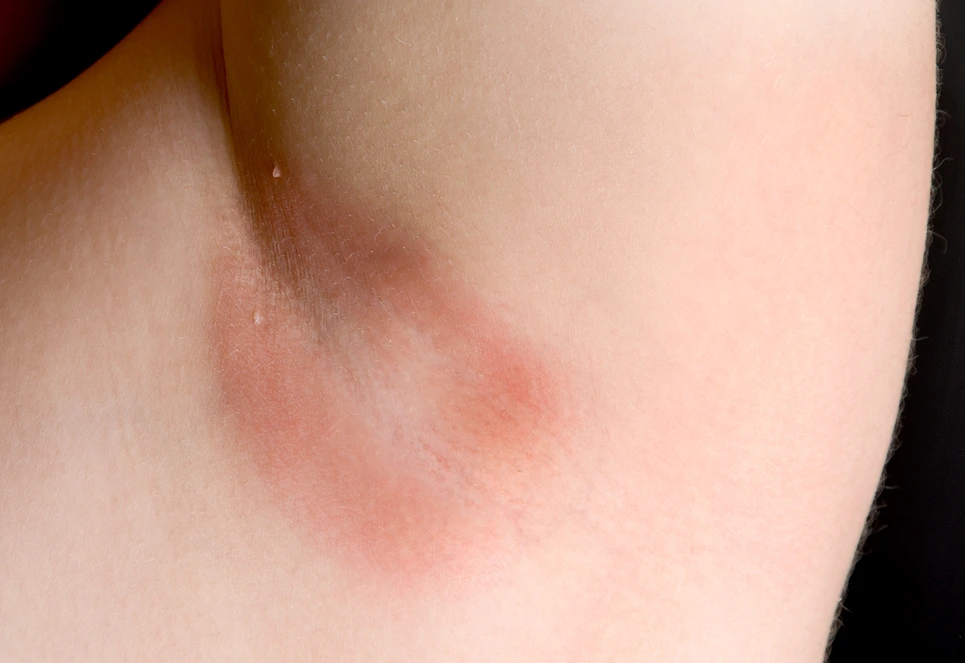
While laser hair removal itself may not directly cause yeast overgrowth, every person’s body and health status is unique. Our experienced staff will evaluate your individual needs and risks to customize a treatment plan. If you are susceptible to yeast infections, we may recommend:
- Taking a prophylactic oral antifungal medication after your laser session
- Using an over-the-counter topical antifungal cream on the treated area for 3-5 days
- Avoiding potential irritants like scented soaps, tampons, douches, and tight-fitting underwear
- Wearing cotton underwear and loose-fitting clothes to keep the area clean and dry
- Taking probiotic supplements to promote healthy vaginal flora
- Monitoring for any signs of yeast infection and contacting our office if symptoms arise
- Refraining from sexual activity for a few days after treatment
What If I Currently Have A Yeast Infection?
If you are already dealing with the nuisance of a yeast infection, you may be wondering if you need to postpone your laser hair removal appointment.
The short answer is – not necessarily. At Ethos Spa, your comfort and safety are our top priorities. Our team will discuss your current yeast infection and determine the right approach. Mild yeast infections can often be treated simultaneously with laser hair removal as long as proper precautions are taken.
However, moderate to severe active yeast infections may warrant rescheduling your session once the infection has resolved. Laser treatments could aggravate the inflammation and symptoms.
When yeast infections have cleared up, you have the green light for laser hair removal! In fact, removing unwanted hair can help keep the vaginal area dry and free from bacteria and yeast buildup on hair follicles. Our precision treatments may reduce regular irritation from shaving and waxing that can trigger recurring infections.
Talk to our staff about using prophylactic oral medications and topical creams before and after your session when dealing with chronic yeast issues. We’re happy to work with you and your doctor to develop a tailored yeast prevention protocol.
Managing Discomfort After Treatment
Laser hair removal impacts each person differently.
It’s normal to have some minor irritation or discomfort for a day or so after a treatment session. At Ethos Spa, we use advanced cooling techniques to ensure your laser experience is as comfortable as possible.
If you experience itching, swelling, redness or blistering, this is usually just temporary skin inflammation from the laser’s thermal effects. But if symptoms persist or worsen, contact our office – we want to rule out any possible yeast infection or other issues.
The best remedy is keeping the area clean and dry. Avoid irritants, fragrant products, and friction from tight clothes. Use a cold compress or aloe-based cream to ease discomfort. Over-the-counter hydrocortisone can also reduce inflammation. Check with our staff before applying anything to the treated area.
Why Ethos Spa Is Your Best Choice
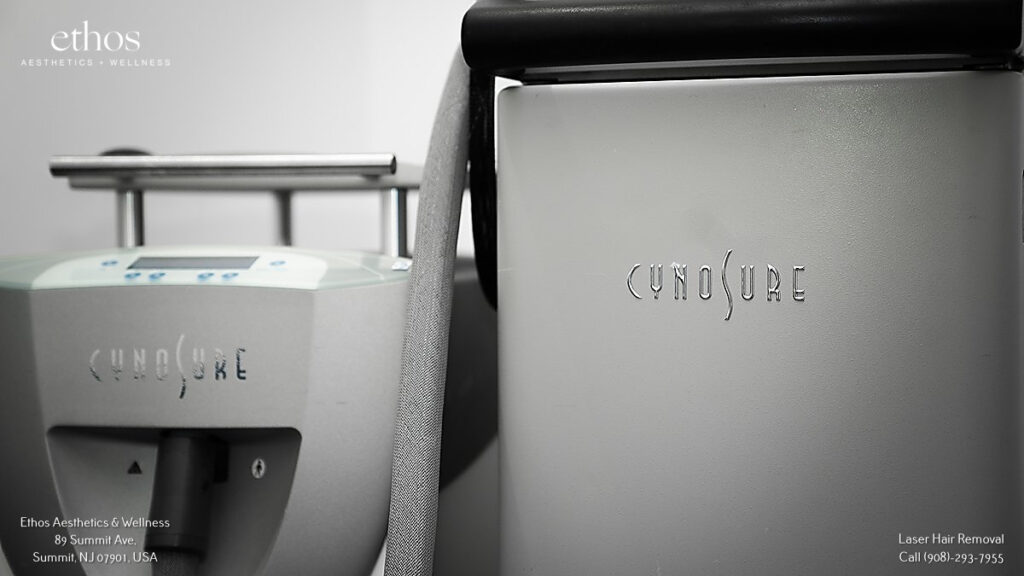
When it comes to something as precise and personal as laser hair removal, you want to entrust your care to experts.
At Ethos Spa, our veteran team knows that laser therapy is about more than just technology – it’s about understanding your specific needs and goals. From your initial consultation to the last follow-up, we take the time to evaluate your health profile, assess your skin, review all protocol, and customize every parameter of the laser to your unique physiology.
We go above and beyond to ensure your safety, comfort, and satisfaction. You’ll feel confident and at ease through every step of the process with our caring staff. We welcome any questions or concerns and will work with you to achieve the smooth, vibrant skin you want.
We’ve already helped thousands embark on the journey to permanent hair removal through our customized laser treatments. While yeast infections are certainly a nuisance, research shows our precision protocols do NOT substantially increase risk.

